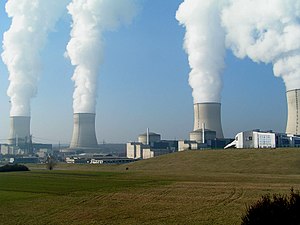Conventional nuclear power

Currently, all of the world's nuclear power plants
Scarcity of uranium-235

Citation:
Uranium 2020: Resources, Production and Demand ('Red Book')
"The total recoverable identified resources to $260/kg U is 8.070 million tonnes U."
Citation: Key World Energy Statistics 2020 (IEA report) - Page 73 - Glossary - Nuclear
Does not include the fuel used in generating electricity. See [energy.tes] for that.
Citation: "Key World Energy Statistics 2020" IEA
- Page 47 - Simplified energy balance table - World energy balance, 2018
This is the main reason why nuclear power only provides a small fraction of the world's energy. Uranium-235 is a scarce mineral - far more scarce than fossil fuels.
If all the world's energy were to come from nuclear, we'd run out of uranium-235 in about 4 years.
(see maths)
(calculation loading)
(more)~ We'd run out even faster if all nations were developed.
~ In either case, conventional nuclear power can't really meet global energy demands. Best case, it might be sufficient for baseload electricity only (which is a smaller part of total energy demand).
Possible solutions:
- Breeder reactors, to make use of uranium-238, which is over 100 times more abundant.
- Extracting uranium from seawater[unlikely to be viable]
Nuclear waste
Since the reactors only make use of the uranium-235 component, the remaining matter becomes "spent fuel" and must be disposed of. This nuclear waste is still radioactive enough to cause harm to anyone exposed to it without protective equipment. It remains this way for millions of years.
Possible solutions:
- Breeder reactors, which could keep obtaining energy from the spent fuel (mostly uranium-238) until there's barely any radioactive waste left at all.
Risk of meltdowns
Meltdowns have happened twice in history: Chernobyl and Fukushima. Nuclear plants have since been designed to not repeat the mistakes of the past. [ELABORATION needed] Then again, some people say there are still unknown risks. [debate needed, perhaps]
Weapons proliferation
Reactors are well designed to prevent people from stealing uranium to make thermonuclear bombs. Governments of course still have nuclear warheads, which is still a major issue in itself.